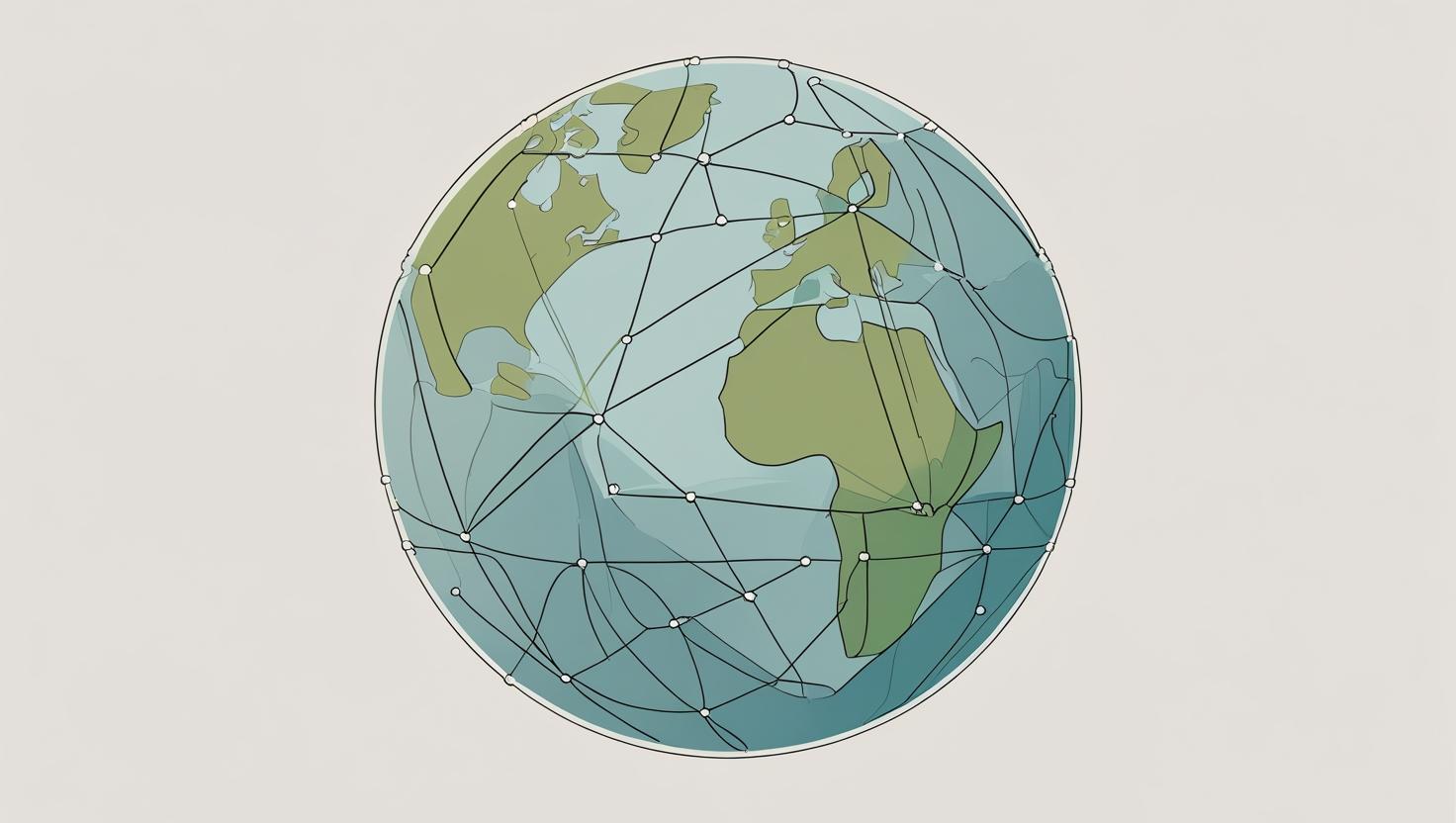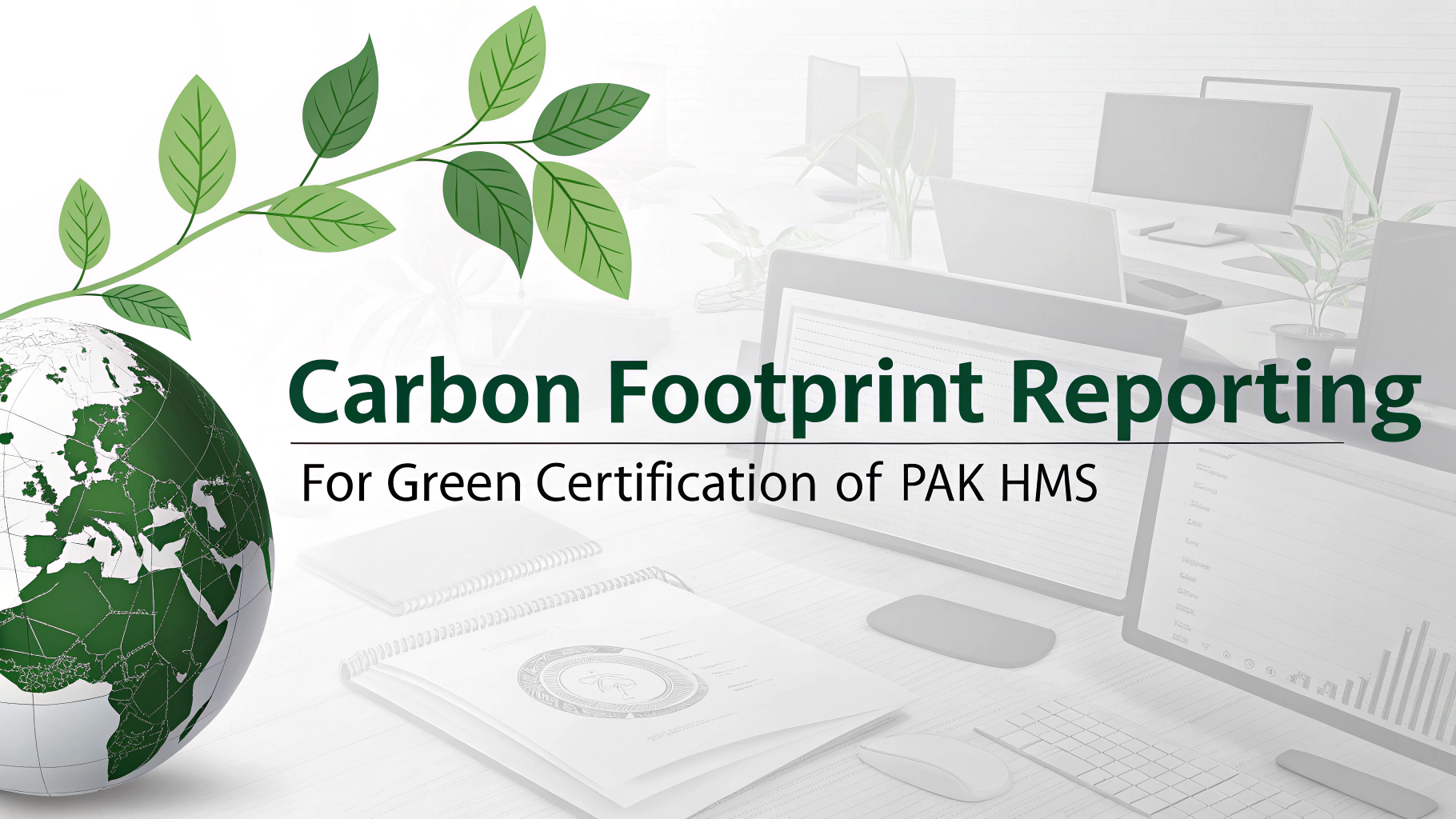Carbon Footprint Reporting for Green Certification of PAK HMS (2025 Eco-Hospitality Playbook)
As climate change becomes an ever-pressing global concern, the hospitality industry is being called upon to operate more sustainably. From international resort chains to boutique guesthouses, properties are expected to measure and reduce their environmental impact. One of the most critical components of this transformation is the accurate calculation and reporting of carbon emissions—commonly referred to as a hotel’s carbon footprint.
In Pakistan and across the globe, green certifications like LEED, Green Key, EarthCheck, and the emerging Pakistan Sustainable Hospitality Initiative (PSHI) require verifiable carbon data for eligibility and ranking. For hotels using PAK HMS, tracking and reporting carbon emissions isn’t just possible—it’s streamlined, automated, and incredibly insightful.
In this blog, we’ll explore how hotels can leverage PAK HMS’s carbon tracking tools to meet sustainability goals, earn certifications, and make data-driven decisions that benefit the planet and the bottom line.
🌍 What Is a Carbon Footprint in Hospitality?
A carbon footprint represents the total greenhouse gas (GHG) emissions caused directly and indirectly by hotel operations. In hospitality, this includes:
- Scope 1: Direct emissions from hotel-owned equipment (generators, vehicles, gas boilers)
- Scope 2: Indirect emissions from electricity or district heating
- Scope 3: Emissions from purchased goods, waste disposal, guest travel, vendor logistics, etc.
These emissions are typically expressed in carbon dioxide equivalents (CO₂e) and are measured per room night, per guest, or per square meter of the property.
📊 Why Carbon Reporting Matters for Hotels in 2025
Green Certification Requirements
Carbon tracking is now a minimum requirement for certification programs like:
- LEED v4.1
- Green Key Global
- EarthCheck
- PSHI Tier 2+ Certification (Pakistan-specific)
Investor and Brand Pressure
Global hotel chains and investors demand ESG (Environmental, Social, and Governance) reporting. Carbon footprint is a primary metric.
Guest Preferences
In 2025, over 68% of guests globally consider sustainability credentials when booking hotels.
Cost Reduction
Carbon tracking leads to energy efficiency, which results in real savings on electricity, gas, fuel, and waste handling.
💡 How PAK HMS Helps Track Carbon Emissions
PAK HMS is more than just a hotel management system—it’s a fully integrated operational and environmental intelligence platform. Through its Green Insights and Utility Management Modules, hotels can track and report their carbon data with minimal manual input.
Key Features Include:
- Real-time utility integration (electricity, gas, water)
- Fuel usage logs for generators and transport fleets
- Automated CO₂e conversion factors based on local grid emission rates
- Data visualizations for audit-ready reporting
- Scope-based emissions categorization
- Comparison against industry benchmarks and past performance
🧮 Carbon Emission Sources Measured in PAK HMS
| Emission Category | How PAK HMS Tracks It |
|---|---|
| Electricity Use | Smart meter/BMS data imported automatically |
| Fuel Combustion | Generator logbooks, fleet refueling logs |
| Heating/Cooling | HVAC data via Building Management System |
| Water Consumption | Pump energy + water processing estimates |
| Kitchen & Laundry | Machine run-times + power draw |
| Guest Behavior | Room usage, A/C settings, digital vs paper requests |
| Procurement | Carbon scorecards from vendor deliveries |
| Waste Disposal | Weight of food waste, recyclables, and landfill |
| Events/Meetings | AV equipment load, food transport, attendee travel logs |
Each source is assigned a CO₂e coefficient, ensuring precision in reporting.
🔁 Scope 1, 2, and 3 Reporting in Action
Example Breakdown for a 100-room city hotel in Lahore (March 2025):
| Scope | Source | CO₂e (kg) |
|---|---|---|
| 1 | Diesel generator fuel (350L) | 930 kg |
| 1 | Fleet van fuel (petrol, 120L) | 276 kg |
| 2 | Electricity (30,000 kWh) | 20,700 kg |
| 3 | Vendor deliveries (4,000 km) | 500 kg |
| 3 | Food waste to landfill (180 kg) | 90 kg |
| Total | 22,496 kg CO₂e |
PAK HMS compiles this into a per-room night emission value and visual dashboard for sustainability officers.
📈 Real-Time Dashboards and Alerts
- Monthly carbon footprint by scope or department
- Year-on-year and quarter-on-quarter comparison graphs
- Emission hotspots (e.g., kitchen, HVAC, events)
- Carbon reduction target tracking
- Alerts for sudden spikes in emissions (e.g., prolonged generator use)
This empowers operational teams to take proactive climate actions, not just reactive reporting.

📑 Generating Green Certification Reports
PAK HMS automatically compiles carbon data into templates used for:
| Certification | Required Report |
|---|---|
| LEED | Energy & Atmosphere Logs, GHG Reduction Plans |
| Green Key | Annual GHG Emissions Summary + Waste-to-Carbon Conversion |
| EarthCheck | Monthly Carbon Ledger with Scope 1–3 |
| PSHI | Emissions per Guest-Night + Vendor Carbon Declarations |
All reports are audit-ready (with digital timestamps and source tracking), localized to Pakistani units and regulatory terms, and exportable as PDF, Excel, or JSON.
🧠 Predictive Carbon Analytics with AI
- Forecast emissions based on occupancy trends and weather
- Model carbon impact of vendor switches or equipment upgrades
- Suggest reduction strategies (e.g., switch diesel generator for solar, reduce linen turnover frequency)
- Estimate ROI on retrofitting HVAC systems
This helps hotels balance climate impact with capital budgeting.
🏨 Case Study: GreenStay Hotel, Islamabad
Problem:
- Failing to qualify for PSHI Tier 2 due to lack of carbon data
- High generator use during summer peak hours
- No vendor-level emissions visibility
Solution via PAK HMS:
- Connected smart meters for fuel and power
- Enabled monthly carbon dashboards by department
- Added emission reporting requirements to vendor contracts
- Installed predictive alerts for HVAC overuse
Result:
- Achieved 22% reduction in emissions in 9 months
- Certified PSHI Tier 2 in April 2025
- Reduced generator hours by 38% through energy monitoring
- Received “Green Hospitality Innovation Award” from SDPI
📅 6-Month Carbon Tracking Plan for PAK HMS Hotels
| Month | Action |
|---|---|
| 1–2 | Connect utility meters, fuel logs, and vendor data to PAK HMS |
| 3–4 | Generate baseline carbon footprint report |
| 5 | Set targets and activate predictive alerts |
| 6 | Submit green certification applications with PAK HMS reports |
Ongoing: Review dashboards monthly and reward departments meeting reduction targets.
✅ Benefits of Carbon Reporting with PAK HMS
| Benefit | Impact |
|---|---|
| Green Certification | Access to LEED, PSHI, EarthCheck, Green Key |
| Cost Reduction | Lower electricity, fuel, and HVAC expenses |
| Operational Efficiency | Identify wasteful systems and workflows |
| Guest Loyalty | 5-star ratings from eco-conscious travelers |
| Investor Confidence | Transparent ESG reporting for stakeholders |
PAK HMS makes carbon management as easy as financial accounting.
🧾 Bonus: Carbon Offsetting Integration (Coming Late 2025)
- Links reported emissions to verified offset partners (e.g., tree planting, renewable energy)
- Allows guests to voluntarily offset their stay’s carbon footprint
- Offers a “Net-Zero Stay” badge for properties and guest profiles
This will make PAK HMS the first HMS in South Asia with built-in carbon offset automation.
🧭 Final Thoughts: Track. Reduce. Certify. Repeat.
Sustainability is no longer a niche—it’s the new operational standard. With PAK HMS, hotels don’t just track emissions—they manage them strategically, cost-effectively, and credibly.
By adopting data-driven carbon reporting:
- You prepare your property for future regulations
- You qualify for top green certifications
- You build a legacy of hospitality that supports the planet



Leave A Comment